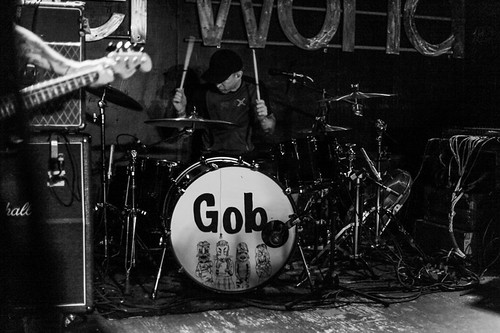/GAWB/. noun. A lump or mouthful of something. Slang for the mouth. In mining: a seam or area emptied of valuable material and/or the waste material used to fill such an area back in.
Mining is an occupation filled with colorful people speaking in colorful language and, when prospecting for gold, at least, hoping for the very earth to “show color.”
Alaska has a long, proud history of mining, so it’s no surprise that a lot of classic lingo has made its way into everyday conversation here, whether talking gold fever and claim jumping or pay dirt and bonanzas… or is that bonanzii?. I haven’t had any luck finding examples of mining jargon that originated in Alaska, though I did find some discussions asserting that Forty-Niner miners refers to Alaska being the 49th state, ignoring the small problem that Alaska didn’t become a state for more than 50 years after the gold rushes here. Forty-Niners, as fans of California, that other golden state, will know, actually refers to the gold rush that began booming there in 1849.
Nevertheless, mining is an occupation—a lifestyle—as rich with golden words as the metal itself, including some I’d love to see make a comeback. Sourdough is well-established as an old hand, but I have at least as much use for cackler, one who talks while others work (but hopefully doesn’t have the last laugh). And while my kids inherited my love for bacon, supposedly known as “slow bosom” for reasons I can only guess and which make me think uncomfortably of “long pig,” there’ve been more than a few culinary experiments over the years which would’ve earned me the title of stomach lobber or gut burglar had they known about them.
But the tiny mining word that caught the linguistic eye of my lunatic mind was the diminutive gob, which I didn’t realize was a mining term. The gob (also known as the goaf or gove) is both a seam or other area that has been emptied of valuable components and intentionally collapsed or filled in with waste material and that waste material itself, which often comes from the gob pile, also called the spoil tip or the boney bank among other colorful names.
You have to admit it’s a little confusing, at least in the abstract, that gob can refer to both the space left over after mining and the waste used to fill that space in, though in practice words that can also mean their opposite—what word nerds know as a contronyms, antagonyms or Janus words—work just fine, as we have no problem distinguishing between, for example, seeding a lawn and seeding a watermelon.
In this case, the double use of gob parallels the history of the word. One form comes from the Irish word gob (same spelling, meaning mouth) and the other from gobbet, which winds its way down to us from the Old French gobet (a lump, or a mouthful), which is related to the French gober (to gulp or swallow). Both of these appear to come from a single root, the Gaulish gobbo (a beak, muzzle or snout) (in Gaelic, gob still means beak), which, to end our little excursion, is itself surmised to come from the Proto-Indo-European ǵoph₃o- meaning mouth or to chew.
Our little history lesson also explains the slangy, contemporary use of gob to refer to either the mouth or a mouthful of something and derivatives like gobstoppers, a name for jawbreakers that dates back to at least 1906, well before Willy Wonka, or being gobsmacked (as in rendered speechless, not listening to the nearly homonymic band). And while gobble and goblet are related to good old gob, goblin, despite my imagination running wild, sadly is not.
In the kind of serendipitous trouble I seem uniquely able to find, while taking a break from writing these very words someone in an online chat literally told me–I mean typed at–me: shut yer gob! I was so excited by the coincidence I forgot to be insulted, but I’ll belatedly take that usually justified advice right now.





Leave a Reply